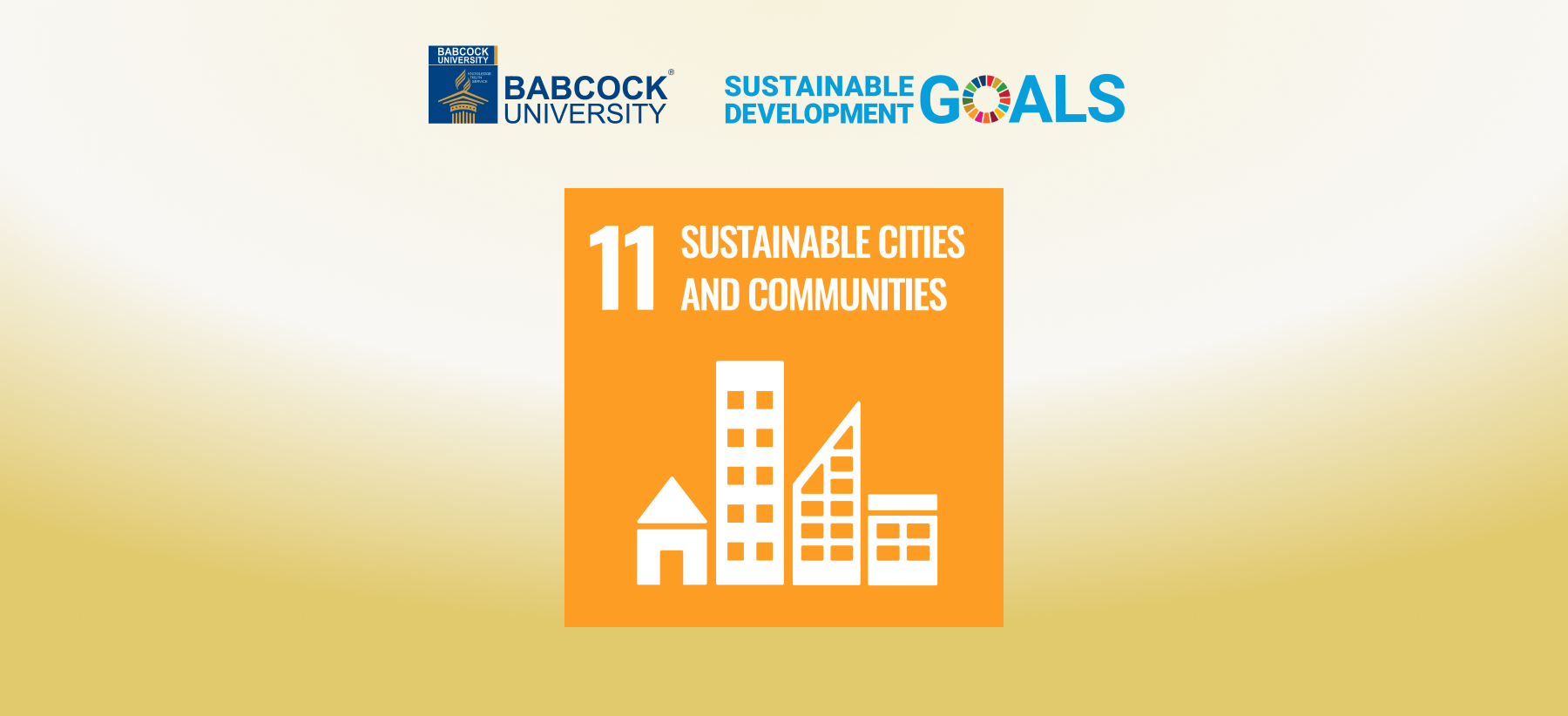Babcock University’s Commitment to Sustainable Cities and Communities (SDG 11): Enhancing Road Safety, Pollution Reduction, and Renewable Energy
Babcock University contributes significantly to research that supports sustainable urban environments, aiming to make cities inclusive, safe, and resilient. Through studies on road safety, pollution management, and energy efficiency, the university aligns with Sustainable Development Goal 11, advancing urban sustainability for healthier, more inclusive communities.
Road Safety and Emergency Response
Effective road safety measures are essential for reducing urban fatalities and injuries. The study, Assessment of Knowledge, Skills, and Preparedness of General-Duty Police on Prehospital Care of Road Traffic Accident Victims in Abuja, Nigeria, examines the knowledge and readiness of police in delivering prehospital care to accident victims. Findings emphasize the need for improved first aid training, which aligns with Babcock University’s commitment to fostering safer urban transport systems through enhanced emergency response capabilities.
Addressing Plastic Pollution in Nigerian Rivers
Pollution from single-use plastics poses significant environmental and health risks. The study, Why Nigeria Should Ban Single-Use Plastics: Excessive Microplastic Pollution of the Water, Sediments, and Fish Species in Osun River, Nigeria, highlights the detrimental effects of microplastics on water quality and biodiversity in the Osun River. This research advocates for stricter waste management regulations and reflects Babcock University’s role in promoting sustainable environmental practices to reduce urban pollution.
Enhancing Urban Resilience Through Renewable Energy
The transition to renewable energy sources is crucial for sustainable urban development. The study, Trends in Carbon Emissions and Renewable Energy Usage, explores the relationship between renewable energy adoption and carbon emissions. This research supports Babcock University’s efforts in advocating for energy policies that promote cleaner energy solutions, helping cities reduce their carbon footprint and build resilience against climate change.
Sustainable Waste Management Practices
Sustainable waste management is a cornerstone of resilient urban systems. The study, Knowledge, Perception, and Solid Waste Management Practices Among Residents of Oshodi-Isolo, Lagos State, investigates waste disposal behaviors, revealing opportunities for community engagement in waste reduction. This research underscores Babcock University’s commitment to developing sustainable practices that minimize waste and foster cleaner urban environments.
Modeling Energy Consumption for Urban Development
Urban growth presents challenges for sustainable energy use. The study, Modelling Coal Energy Consumption and Economic Growth: Does Asymmetry Matter in the Case of South Africa?, provides insights into the environmental impacts of coal energy in densely populated areas. This research aligns with Babcock University’s focus on sustainable energy, promoting alternatives that support the sustainable growth of urban areas.
Conclusion
Through its research on road safety, pollution control, renewable energy, and waste management, Babcock University’s initiatives align with SDG 11. These efforts contribute to building cities that prioritize safety, sustainability, and resilience, paving the way for a healthier, more inclusive urban future.

